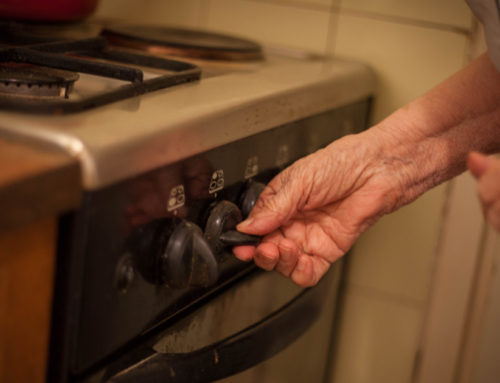Chances are you know someone who has suffered from dementia or Alzheimer’s Disease. If you have, you know there is a continuous, gradual decline that is very difficult to watch. It’s the last thing you want to have happen to your loved one. As we age, our brain ages with us. Over time, it’s natural for there to be some difficulty in remembering details, like where we placed our reading glasses or car keys. It’s the serious cognitive decline that concerns us.
Fortunately, there are steps you can take to delay or even prevent cognitive decline for the senior in your life. Let’s look at some of the proactive things you can do.
Exercise
Some studies show improved cognitive functioning in seniors who regularly exercise. It’s been shown that physical activity may contribute to vitality by reducing stress and improving mood and other risk factors contributing to cognitive decline. Data suggests that exercise, including enjoyable leisure activities, may help prevent cognitive decline.
Herbs and Supplements
Though research has yet to confirm it, many people believe that herbs and supplements prevent cognitive decline. Vitamin E, ginkgo biloba, and fish oil supplements are big sellers for stores and websites that provide them.
Do they help? Studies haven’t shown a direct link to taking them and preventing cognitive decline, but taken in recommended doses, they have not been shown to be harmful. It’s best to talk with a doctor first if you’re considering them for your senior. There can be safety issues related to other conditions they may have or other medications they’re taking.
Diet
A nutritious, low-fat diet also may help protect against cognitive decline. This type of diet provides necessary nutrients and may reduce the risk of diseases causing cognitive decline, such as type 2 diabetes, atherosclerosis, high cholesterol, and high blood pressure.
Some foods that are parts of a good low-fat diet include:
- Vegetables
- Fruits
- Whole grains
- Fish
- Poultry
- Lean meats.
Limit servings of fish, poultry, and lean meats to 5-7 ounces per day.
Sleep
Older adults often face sleep disorders and sleep disruption. These may affect cognitive functioning, such as learning and memory. Daytime sleepiness is often a symptom of a sleep disorder associated with an increased risk for dementia. Going to bed and waking up at the same time each day may be of benefit.
Sociability
Having a limited social circle is another risk factor for dementia. Living alone or not having any close social interaction are contributors and risk factors for cognitive decline. Maintaining many social connections and being a participant in activities with others stimulates the mind and challenges seniors to communicate. This helps keep the senior active and can prevent cognitive decline.
Mental Stimulation
The Journal of the American Medical Association published a study that found participating in mentally stimulating activities reduced the risk of Alzheimer’s disease. Mental stimulation isn’t only limited to formal education. It can include activities like:
- Playing board games
- Playing musical instruments
- Reading books, newspapers, or magazines
- Playing cards, checkers, and chess
- Doing crossword puzzles
- Going to museums
While these activities can prevent memory loss, they’ve not been proven to improve memory.
What Else You Can Do
Cognitive decline in seniors is often associated with underlying medical conditions, such as diabetes and high blood pressure. It may be slowed if the conditions are treated. Consult with your doctor if you’re concerned about memory loss or other cognitive impairment. Don’t try to diagnose it or treat it yourself.
Trust Our Dementia Caregivers to Care for Your Aging Loved Ones
Help At Home can provide care or respite care if your loved one is experiencing cognitive decline. We’ve been serving Chevy Chase, Maryland for over 20 years. Learn more about us at www.helpathomecare.com or call us at (301) 654-6789. We’ll be happy to visit with you about your needs and let you know how our friendly, professional caregivers can help you and your loved one.



